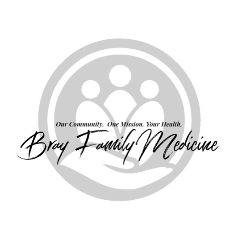Medicine can be a very expensive part of your health care treatment. If your doctor has prescribed medicine and you can’t afford to pay for it, you may be able to get the medicine for free or for a reduced cost. There are several kinds of assistance programs that may be able to help.
Private and public health insurance
If you have health insurance, your plan may or may not pay for prescription medicine. It depends on what kind of insurance you have. For example, if you have private health insurance through your employer, some or all of the cost of your medicine may be covered. If you have the traditional Medicare plan (sometimes called fee-for-service), your medicine probably isn’t covered. If you have a Medicare managed care plan, some of the cost of your medicine is probably covered. In many cases, the Medicaid plan in your state covers the cost of prescription medicines.
State and community programs
Some state governments offer affordable medicine programs for seniors, people who are disabled and people who have low incomes. Community health centers, Area Agencies on Aging, free health clinics, and other community programs may also offer help. To use these services, you may need to show that you don’t qualify for private health insurance or that you don’t make enough money to pay for your medicine.
Private programs
Some social agencies, such as the Salvation Army and some private hospitals offer financial help for people who can’t afford prescription medicines.
Patient-assistance programs
Patient-assistance programs (also called PAPs) are sponsored by companies that make prescription medicines. Each company has its own rules about who qualifies for its PAP. In many cases, you will need to show that you don’t qualify for private or public health insurance (such as Medicare or Medicaid). You may also need to prove that your income is below a certain level.
Each PAP has its own application process. In many cases, your doctor, nurse or social worker will need to apply for you. For some programs, your doctor or nurse can submit an application online using the Internet. For others, the application must be mailed in. It’s important to keep in mind that applying doesn’t guarantee that you will get your medicines for free or for a lower price.
For more information
The following Web sites can help you and your doctor find out more about assistance programs and which ones you might qualify for:
www.needymeds.com
This Web site gives information about PAPs. The site also lists drugs that are available through PAPs and gives contact information for the companies that make them. In many cases, you can download a copy of a drug company’s PAP application. The NeedyMeds site also links to state Medicaid Web sites.
www.RxHope.com
This site is supported by the Pharmaceutical Research and Manufacturers of America (also called PhRMA). Using the tools on the RxHope site, your doctor can apply for you to receive free or low-cost drugs from the companies that make them.
www.medicare.gov/prescription/home.asp
This is the official Web site of the Medicare program. It offers a search tool called “Prescription Drug Assistance Programs” that can help you find a medicine assistance program in your area.
www.rxassist.org
This Web site is sponsored by an organization called Volunteers in Health Care. By searching the database on this Web site, your doctor, nurse or social worker can find out which PAPs you might qualify for. The site also gives information about other resources, such as drug discount programs.

Log in to Patient Portal
Not a member?
Already a member?
Questions? call 870-464-1515
